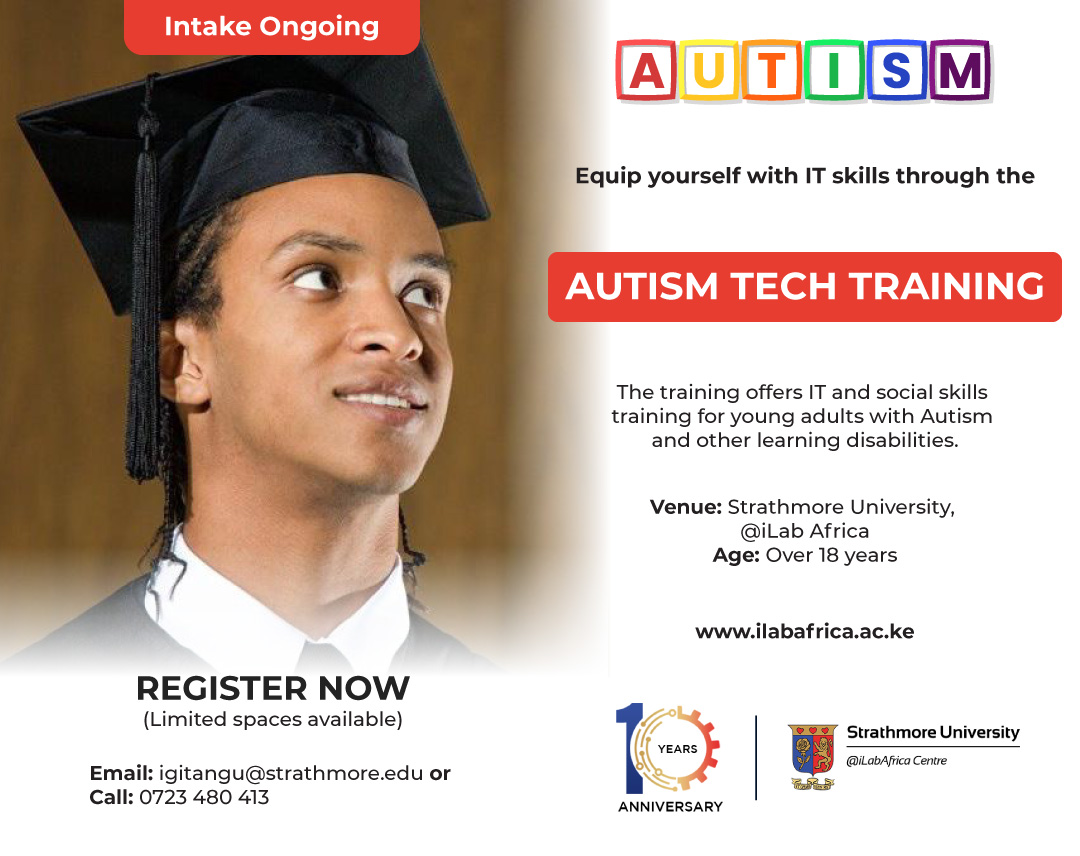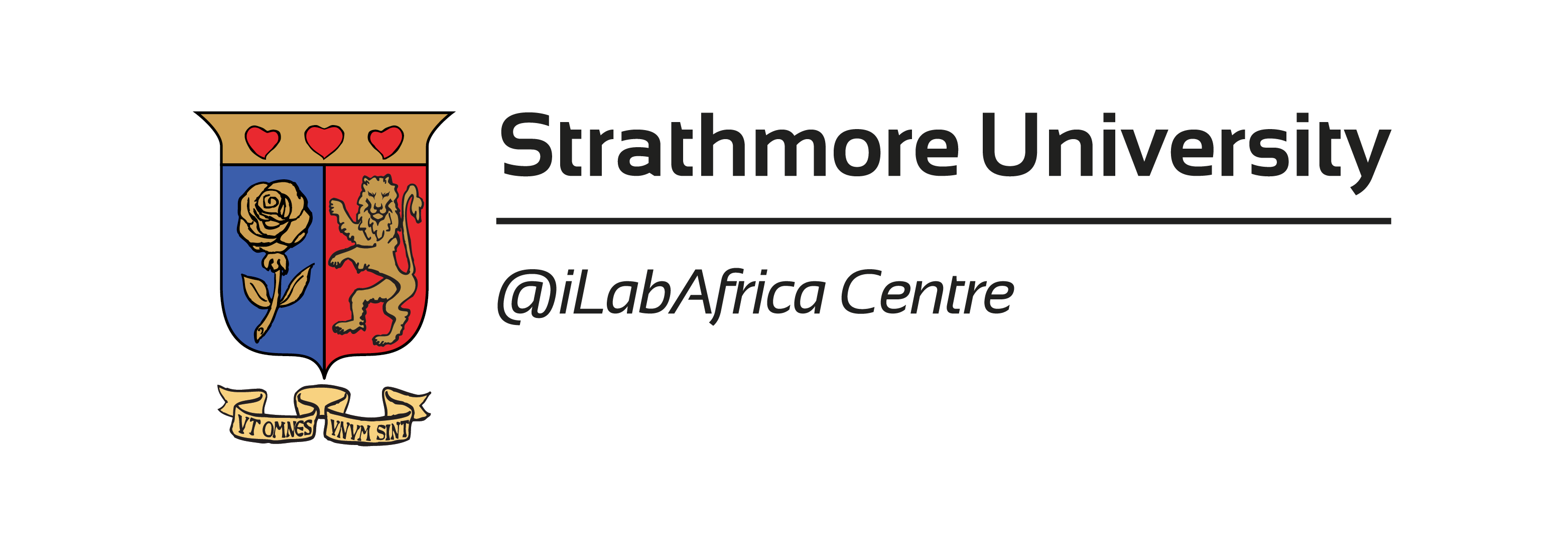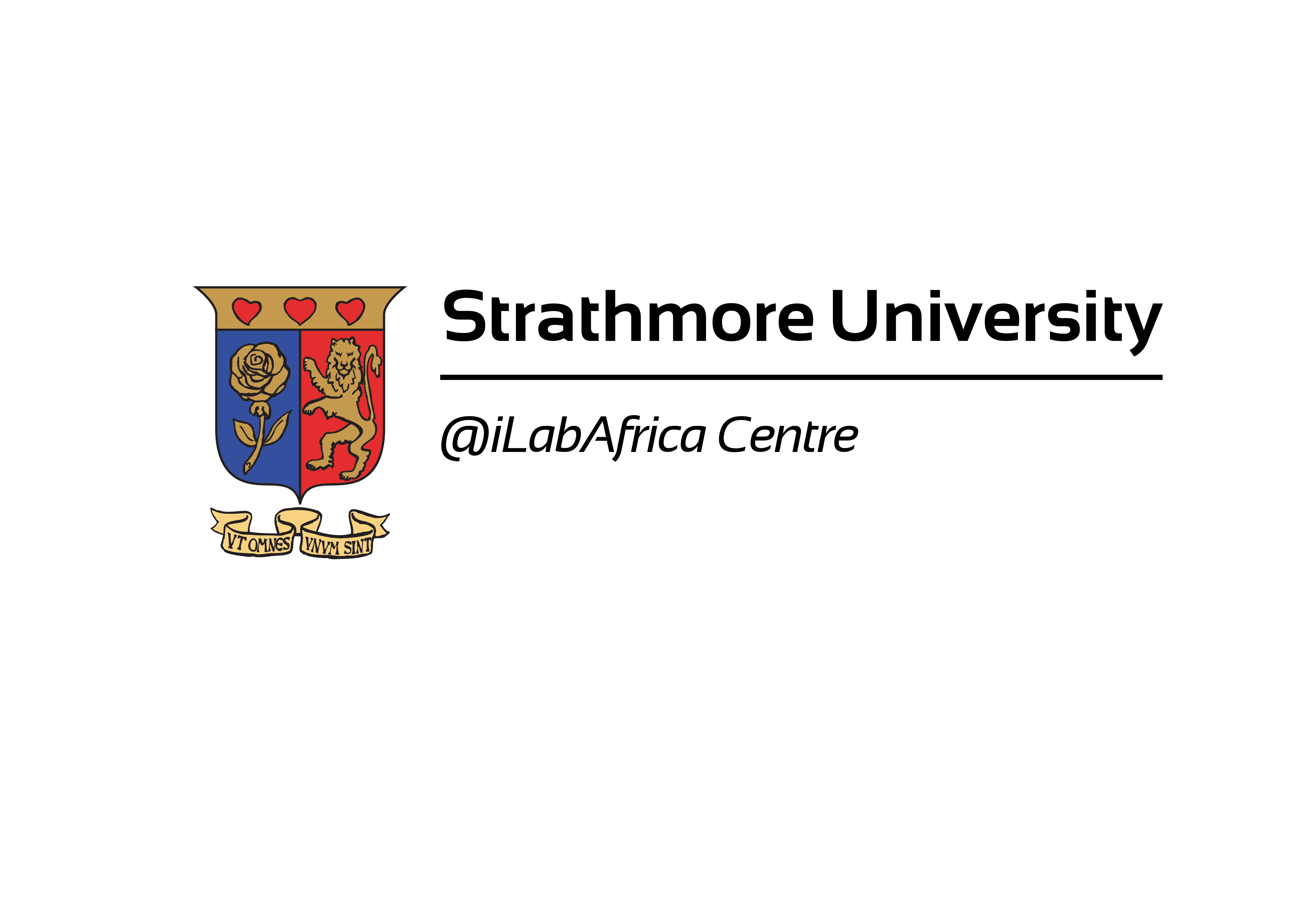
AUTISM TECH TRAINING PROGRAM
@iLabAfrica offers a unique training program for young adults with Autism and others with other learning disabilities and seeks to equip them with IT skills with hopes to make a significant contribution towards solving the problem of access to meaningful employment opportunities by offering a 4-month intensive training on IT skills, Software testing, Java programming, Microsoft Office Suite training, Game development, Mobile development, soft skills training among other areas.
The program seeks to create an environment whereby these individuals can be employed on the basis of their areas of strength. It seeks to harness the strengths of people with learning disabilities which include attention to detail, precision, an affinity for repetitive tasks, outstanding technology skills and take them through the 4-month training. provide them with intensive training on IT skills such as software testing, Java programming, Microsoft Office Suite training, Game development, cloud computing, soft skills training among others.
AUTISM SPECTRUM DISORDER (ASD) OVERVIEW
According to the Centre for Disease Control (CDC), Autism is a developmental disability that can cause significant social, communication and behavioral challenges. There is often nothing about how people with ASD look that sets them apart from other people, but people with ASD may communicate, interact, behave, and learn in ways that are different from most other people.
The rate of autism in all regions of the world is high and it has a tremendous impact on children, their families, communities and societies. At the moment, no conclusive explanation of causes is available, neither is there a proven medical cure. The main social consequence of autism is lack of inclusion, a human rights issue. It is estimated that more than half of young adults with autism remain unemployed and unenrolled in higher education in the two years after high school. This is a lower rate than that of young adults in other disability categories, including learning disabilities, intellectual disability or speech-language impairment.
Research suggests that employers are missing out on abilities that people on the autism spectrum have in greater abundance than neuro-typical workers do – such as, heightened abilities in pattern recognition and logical reasoning, as well as a greater attention to detail. However, there are hurdles to be overcome in order to gainfully employ these talented individuals e.g. a shortage of vocational training, inadequate support with job placement, and pervasive discrimination.

OBJECTIVES OF THE PROGRAM
- To train individuals on the Autism Spectrum as well as others with learning disabilities and equip them with IT and social skills.
- Create awareness about the positive qualities of people with Autism, leading to less discrimination and greater inclusion in the workplace.
- Help individuals living with Autism as well as others with learning disabilities live independently and encourage employers to employ them in their organizations.
- Reduce dependency on aid, charity and government subsidy to meet the needs of individuals on the spectrum, transforming persons with disabilities from tax revenue consumers to tax revenue contributors.
- To have a successful transition where the candidates can be easily absorbed into the working environment.
IMPACT
The Autism Tech training program aims to have the following general impact:
- To generate interest among employers in the talents that people with learning disabilities have to offer to the mainstream marketplace.
- To give hope to parents of children with learning disabilities and assure them that they can be financially independent as they grow into adulthood.
- To encourage a positive view of people with disabilities in general and those with learning disabilities in particular.



